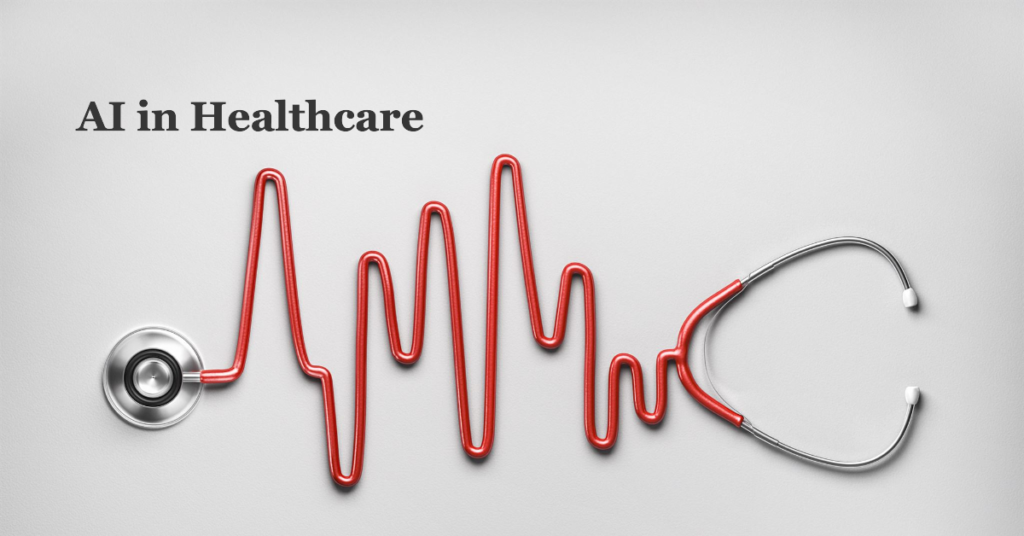The healthcare industry is being transformed by Artificial Intelligence (AI), delivering major progress in data analysis, diagnosis, and patient care. However, the introduction of AI in healthcare must be approached with a measured view, to ensure patient care is still focused on human expertise and empathy. We discuss the varied ways AI is working in healthcare, ethical considerations, and human touch importance.
The Role of AI in Healthcare

The transformative potential of artificial intelligence technology in healthcare is substantial, affecting a broad range of different areas, such as clinical workflows and precision diagnostics. The efficiency and accuracy of health care delivery are significantly boosted by solutions powered by artificial intelligence in diagnosing diseases, monitoring, optimising hospitals, and general improvement. For example, it is able to offer health coaching that is personalised upon user data like what is available through Fitbit devices, and can be useful for early recognition of various diseases.
Additionally, AI’s capacity to analyze large amounts of digital data can help generate novel and critical learnings, which could simplify and expedite drug development. Google has recently made significant progress in generative models for AI, and MedLM and Gemini are two notable projects. These examples represent the potential of AI to assist clinicians in diagnostic reasoning and clinical care.
Ethical Considerations
The importance of ethical governance in the era of AI in medicine cannot be overstated. One strategy to support and guide the development and deployment of responsible AI is to start with the proposed AI benchmarks outlined by the Responsible AI Institute that emphasize the importance of using ethical practices during AI development. There are important ethical considerations such as informed consent, safety, and transparency, fairness of the algorithm, and patient privacy that critically need to be understood to build trust with patients and healthcare providers.
An issue of importance in healthcare settings is the lack of trust in AI technology. A significant percentage of patients, 60 percent, report that they do not trust AI technology. This absence of trust challenges stakeholders to educate health care providers and society on what AI can and cannot do. It is also important that stakeholders consider legal and ethical implications including privacy, biases, and surveillance early on. This dialogue is vital to ensure that AI can be used in a way that is both ethical and responsible.
The Importance of Human Touch

Artificial intelligence (AI) has made great progress, but nothing will remove humanity from health care. We need to remember that AI extends the work of doctors rather than replacing them. In fact, even in machine learning, it is necessary to have a clinician in the loop to make the model work as it should, as well as to ensure the ethical and substantive use of AI technology. For example, in mental health care, AI doesn’t replace psychiatrists but it’s also not just an aid; it can assist; there is still a human touch involved.
The development of artificial intelligence should be goal-driven in healthcare, contributing to tangible, efficient considerations for enhancing operations, enabling more significant patient care, and supporting providers. Collaborative and encouraging environments will be the foundation in the health sector to maneuver through the AI in healthcare priorities and, additionally, shift a more accurate and personalized care structure.
Balancing AI and Human Expertise
The real power of AI comes when it works with human knowledge. AI can actively work alongside healthcare professionals to enhance their efficiency, providing them the freedom and space to better attend to their patients, rather than spending time on clerical tasks. For example, tools like Clinical Notes AI can ease much of the therapists’ mental workload and allow them to focus on their patients. These tools not only automate the note taking but also understand and analyze the therapy sessions.
Using AI systems in healthcare involves learning and acclimation. Healthcare workers should have the education and experience to competently communicate and cope with AI technologies. They should also deal with patient privacy and confidentiality.
Conclusion
Although the potential of AI technology is very exciting in terms of improving patient outcomes and making clinical operations more efficient in healthcare, it is also vital not to lose sight of what makes taking care of patients in the health care setting human. To do this effectively, healthcare needs to effectively negotiate ethical considerations, build trust, and encourage collaboration to make sure AI can reach its potential for improving health care while still preserving the human experience of care.


